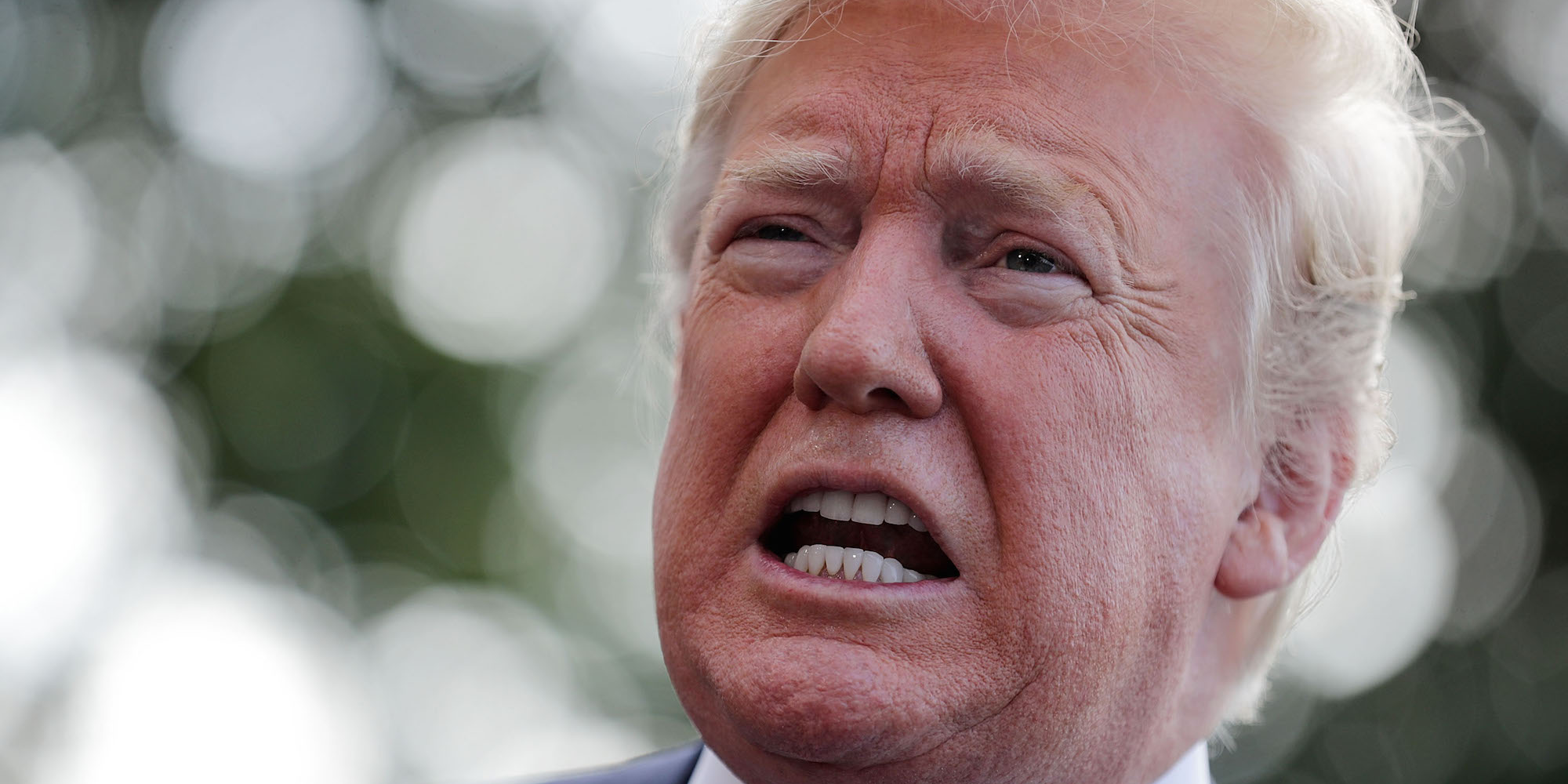- US District Judge Kimba Wood on Friday sided with the government over President Donald Trump, his longtime lawyer Michael Cohen, and the Trump Organization in the latest battle taking place in the Southern District of New York in the aftermath of the FBI raids on Cohen in April.
- In a Friday filing, Wood ordered that all objections to the privilege determinations made by special master Barbara Jones will have to be made publicly with some redactions.
- Trump, Cohen, and the Trump Organization wanted to do so under seal.
US District Judge Kimba Wood on Friday sided with the government over President Donald Trump, his longtime lawyer Michael Cohen, and the Trump Organization in the latest fight over the documents obtained during the FBI raids on Cohen’s home, office, and hotel room in April.
In a Friday filing, Wood ordered that all objections to the privilege determinations made by special master Barbara Jones will have to be made publicly, though Trump, Cohen, and the Trump Organization will be able to redact the portions of the objections that will “divulge ’the substance of the contested documents.” The court, Wood wrote, “will make a final determination as to those portions at a later date.”
Wood’s order appeared to end a battle that had broken out over the past two days. Late Wednesday, Joanna Hendon, the attorney for Trump in the case, filed a letter on behalf of Trump, Cohen, and the Trump Organization requesting that they be allowed to make any objections to Jones’ assessments under seal. Hendon said they were ready to file those objections on Thursday, well before a Monday deadline to do so, if they would be allowed to file them under seal.
Hendon’s letter followed a report earlier this week from Jones, a retired federal judge who is tasked with overseeing the document review process. She released a report on her assessment of the roughly 300,000 initial documents reviewed for privilege designations, writing that a small total of those documents, just 162, were deemed to be privileged.
That means, in her opinion, they could not be used in a potential prosecution of Cohen by the US Attorney's Office for the Southern District of New York, where Cohen is the focus of a criminal investigation into whether he violated campaign-finance laws or committed bank fraud.
Meanwhile, Jones said she disagreed with Cohen, Trump, and the Trump Organization on just three items over which they claimed privilege. Wood had earlier said that any objections to Jones's determinations must be filed within one week of her announcing the assessments.

In response to Hendon's letter, federal prosecutors explained Thursday that they were OK with the objections to Jones's determinations being filed publicly with redactions, but not under seal. The government disagreed with the rationale Hendon put forth as reason to file the objections under seal, saying that there is "no reason" the government and public "should be deprived of access to the balance of the filing."
On Thursday evening, another party jumped into the fight. Lawyers representing a legion of news organizations said in a court filing it opposed Hendon's request to have the objections filed under seal, saying there is "compelling public interest in maintaining the greatest transparency possible in these proceedings."
"The public's right of access here cannot be overstated," wrote the attorney, Rachel Strom of the firm Davis Wright Tremaine, adding, "Now that President Trump and Mr. Cohen are challenging whether certain of these documents may be turned over to government investigators, the public has a right to know what they assert are the bounds of the attorney-client privilege."
"Stated simply, maintaining public confidence in the administration of justice in this case is paramount," the attorney said.
Jones still has yet to finish her review of all the documents. Cohen, Trump, and the Trump Organization have so far reviewed roughly 1.3 million documents obtained by the FBI in the raids. Cohen's attorneys said during a hearing before Wood last week that there were roughly 2.4 million more to sift through.
In that hearing, Wood said their review was going too slowly and ordered them to have it completed by June 15. Cohen's lawyers had argued for a mid-July completion date.
If Cohen's team can't finish reviewing the documents to make privilege designations by June 15, Wood might turn the rest over to a "taint team" of government prosecutors to finish the review, she said. That team would be walled off from those who might prosecute Cohen.
That's exactly the option Cohen and Trump didn't want to have happen. Cohen's team successfully argued in April to have a special master appointed to oversee the document review. Wood agreed to do so on one condition: that the review wouldn't take any longer than it would if it were being handled by the taint team.

